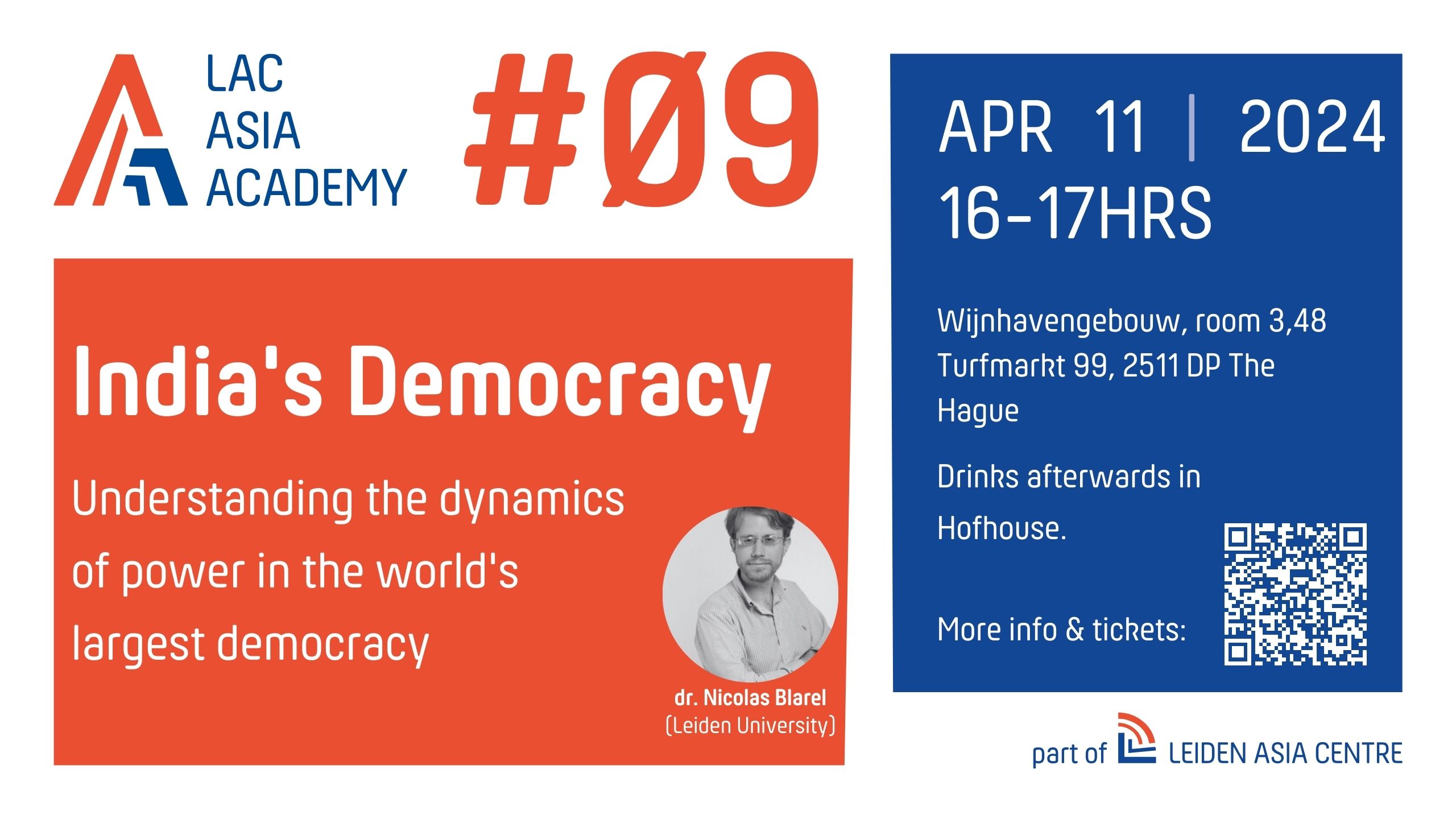Join us for the ninth installment of LAC’s Asia Academy as we delve deep into the heart of Indian democracy with Leiden University Associate Professor Nicolas Blarel. India’s Prime Minister Narendra Modi and his ruling Bharatiya Janata Party (BJP) are campaigning to be re-elected for a third five-year term, as the country’s electorate – compromising over 900 million people – votes in India’s next general elections.
India, home to nearly a fifth of the world’s population, holds the title of the largest democracy—a claim often echoed by the Indian government. However, this assertion is not without scrutiny. Since Narendra Modi assumed office in 2014, the country has moved further into the gray area between democracy and autocracy, largely fueled by Modi’s Hindu-first populism. How big a role does this play in the elections? And can the BJP make sure that India keeps up with its economic growth and rising international prominence? Find out on April 11th!
Nicolas Blarel is an Associate Professor of International Relations at the Institute of Political Science, Leiden University in The Netherlands. He studies foreign and security policy-making, the politics of power transition in global politics, the politics of migration governance, and the international politics of South Asia. Nicolas also studies India’s relations with the Middle-East and has written book on South Asian migration to the Gulf, as well as on The Evolution of India’s Israel Policy: Continuity, Change, and Compromise since 1922. In addition, Nicolas published book chapters and articles on India’s nuclear policies, India’s relations with the U.S. India’s soft power potential, and India’s insurgent movements and state-making.



